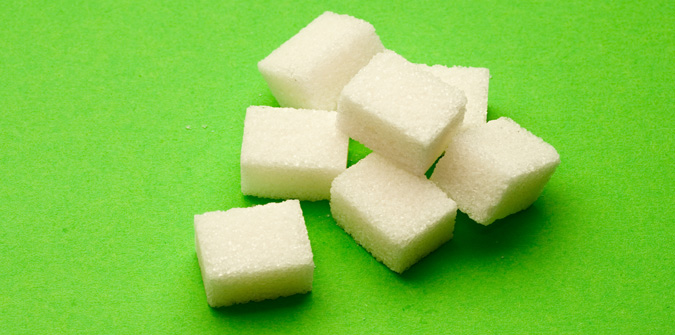Low sugar diets, low carb diets
Sugars can be naturally found in foods such as fruit and vegetables and these are known as intrinsic sugars. They are part of the cellular structure of a plant and are part of a healthy diet. Extrinsic sugar are refined sugars such as table sugar, honey, fruit squashes, cakes, biscuits and confectionary and usually added to foods during food processing. A high consumption of these sugars is the major cause of dental decay.
In the western world we all eat too many of these refined sugars through processed foods. These sugary foods also contain very little nutrients ‘empty calories’ and therefore when consumed surplus to energy needs they will be converted and stored as body fat. Diets that are high in sugar and fat have been associated with obesity which is currently reaching epidemic proportions. It is a myth that eating sugar causes diabetes. Diabetes is caused by a combination of genetic and environmental factors. However, a diet high in fat and sugar can cause you to become overweight which increases your risk of developing type 2 diabetes. The World Health Organisation recommends that extrinsic sugars can be eaten in moderation as part of a healthy diet. The Department of health has set an upper limit of extrinsic sugars providing no more than 10% of our total food energy per day.
A diet that is high in sugary foods such as sweets, cakes and fizzy drinks may also be low in essential nutrients and can significantly add to total caloric intake each day.
The benefits of reducing your refined sugar intake:
Tips to reduce sugar
In the western world we all eat too many of these refined sugars through processed foods. These sugary foods also contain very little nutrients ‘empty calories’ and therefore when consumed surplus to energy needs they will be converted and stored as body fat. Diets that are high in sugar and fat have been associated with obesity which is currently reaching epidemic proportions. It is a myth that eating sugar causes diabetes. Diabetes is caused by a combination of genetic and environmental factors. However, a diet high in fat and sugar can cause you to become overweight which increases your risk of developing type 2 diabetes. The World Health Organisation recommends that extrinsic sugars can be eaten in moderation as part of a healthy diet. The Department of health has set an upper limit of extrinsic sugars providing no more than 10% of our total food energy per day.
A diet that is high in sugary foods such as sweets, cakes and fizzy drinks may also be low in essential nutrients and can significantly add to total caloric intake each day.
The benefits of reducing your refined sugar intake:
- Help weight management and reduce the health risks associated with being over weight.
- Reduce the risk of dental carries.
- Help you to manage your energy levels through out the day without having cravings for sweet foods.
- Help to eliminate sugar related high and low moods.
- Reduce constant hunger pains throughout the day.
- Help blood sugar control in diabetic patients.
Tips to reduce sugar
- Don’t add sugar to drinks or breakfast cereals, you can try by cutting back slowly until your tastes change
- Cut out sugary and fizzy drinks and go for dilute natural fruit juice, water or herbal teas.
- Limit cakes, biscuits, puddings and confectionary and opt for more fresh fruit.
- Check the ingredients list on a food label and if sugar comes first or near the front of the list you know that food is high in sugar.
- Watch out for other words to describe added sugar such as sucrose, maltodextrin, glucose, fructose and hydrolysed starch.
- Go for wholegrain cereals rather than the sugar coated ones.
- Check food labels – low sugar has less than 5% sugar, high sugar has more than 15%.

